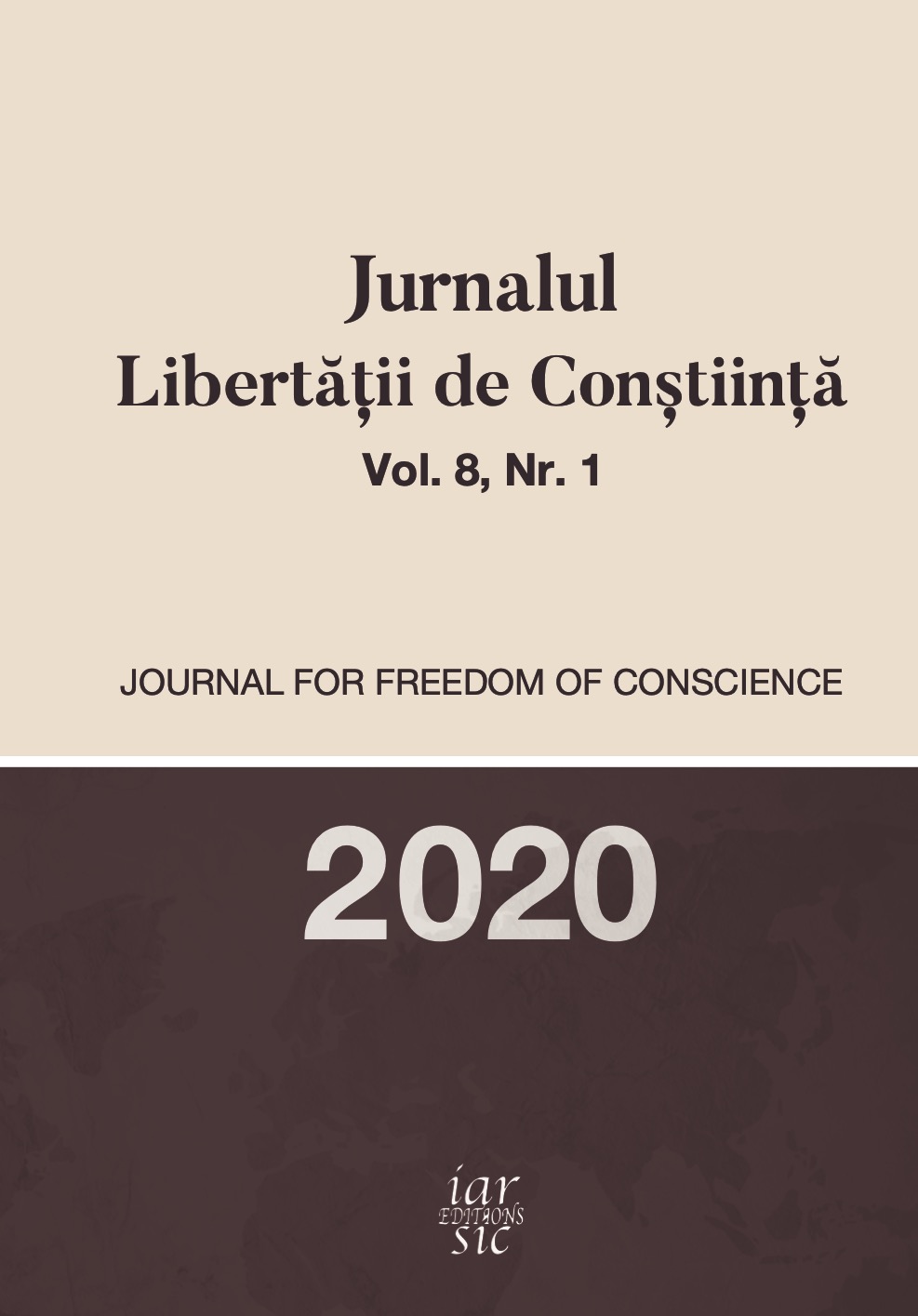LIBERTATEA DE CONȘTIINȚĂ — FACTOR DETERMINANT ÎN FORMAREA IDENTITĂȚII ȘI ÎN AFIRMAREA INTEGRITĂȚII
Freedom of Conscience - Determining Factor in the Formation of Identity and in the Assertion of Integrity
Author(s): Emanuel Adin SalageanSubject(s): Philosophy, Special Branches of Philosophy, Philosophy of Mind
Published by: Editions IARSIC
Keywords: liberty; identity; integrity; self;
Summary/Abstract: In this paper, we will present how identity and integrity are determined by the three levels of freedom presented by Adler J. Mortimer and his team in the study: The Idea of Freedom: A Dialectical Examination of the conception of Freedom. These three models of freedom are correlated with the experience of the self through which the moral development of the human being takes place in the approach to identity and integrity: (1) circumstantial freedom - self- realization; (2) acquired freedom - self-perfection and (3) natural freedom - self- determination. This approach wants to show once again that the human being has value and is endowed with abilities that give him or her the opportunity to desire and aim for high ideals and that the deepest meaning of freedom does not consider, first, the essence of the human being, but its existence, not what man is, but what he or she can become. Therefore, the person’s concern to reach the natural freedom is directly proportional to his willingness to open himself to Divinity, nature and fellows. In this experience to search for freedom that offers the highest fulfilment in life, Jesus Christ is the perfect model, but the examples of other special people from Scripture or Christian and universal history can also be very inspiring.
Journal: Jurnalul Libertății de Conștiință
- Issue Year: 8/2020
- Issue No: 1
- Page Range: 522-553
- Page Count: 32
- Language: Romanian

